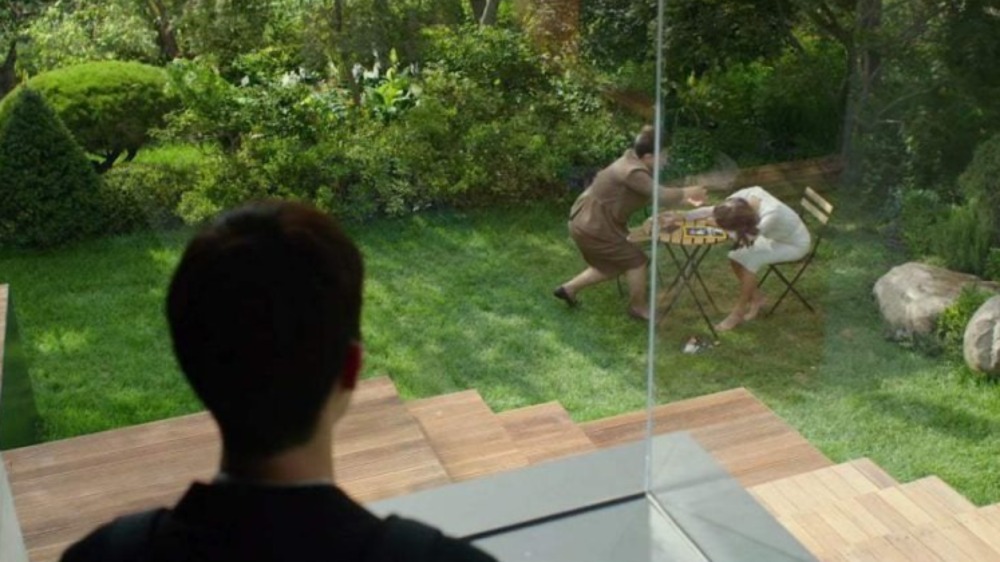What You Only Notice About Parasite During A Rewatch
Although it's a highly acclaimed film that won four awards at the 2020 Oscars, one of the most striking things about Bong Joon-ho's Parasite is how viscerally entertaining it is. The movie, which tells the story of a low-class Korean family that finds a way to deceive a wealthier one until they are thoroughly ingratiated in their lives, is full of twists and turns that keep it from feeling slow or staid.
The movie's plot moves along so well, and all of the major performances are so good, allowing it to always feel thoroughly compelling. Its success is also thanks in large part to Bong's masterful directing, which is impressive without feeling flashy and keeps the story firmly rooted in the characters at its center. The film's production design, which centers on a beautiful, modern Korean home, is also key to the feeling that there's an ever-present divide between the upper class and the family at the film's core, who are just pretenders in their new roles.
That class divide is made literal in the filmmaking as well, but it's through a detail that's easy to overlook the first time you watch Parasite.
Frames are often divided along class lines
Throughout Parasite, Bong Joon-ho chooses to literalize the class divides that are the entire theme of the film. Often, that means that actual frames feature a dividing line separating the poorer, lower-class characters from the upper-class ones that they are sharing the camera space with.
Even though the lower-class family is literally on camera with their richer counterparts, there's still a subtle reminder that these people do not belong to the same world. The realities of this class divide eventually play a very literal role in the film's plot, as the poorer family is unable to escape from the capitalistic system that keeps them pegged to the bottom rung of society. Even before the film's climax proves that escape from poverty is all but impossible, the film is laying the groundwork for that message through the images that it's displaying.
This is true inside the home that is central to so much of the action, but it's also true in the real world. The message of the film is that capitalism has clear winners and losers, and there are some cases when even the winners suffer. Parasite ends with a fantasy of class mobility, suggesting that its lower-class characters can work their way out of their current predicament. In the end, though, it's just a dream, and Bong uses every trick in the book to remind us of that.

